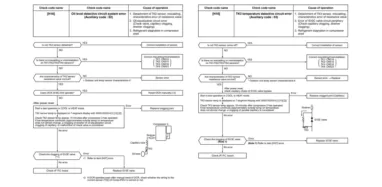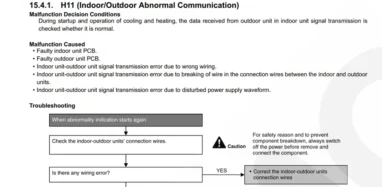When it comes to selecting the best heat-generating device for the house, the type of building plays an important role in the decision-making. But when it comes to heat pumps, the role played by the type of building is often minimal as the most important factor here is the insulation in that particular building.
Regardless of this clearly stated fact, people still want to know, can you install a heat pump in a flat? Whether or not this curiosity emanates from the assumption that not all flat houses are well insulated, considering how madly expensive it is to insulate this type of building, is a topic for another day. However, this article will provide you with accurate information about installing a heat pump in a flat.
Can you install the heat pump in a flat?
Yes, you can install a heat pump in a flat. When it comes to using a heat pump in a flat, many worry about the efficiency of the unit because heat pumps, especially the air source heat pumps, are best installed on the ground outside. Well, the good news is heat pumps can be suitably used in an apartment or flat building, just that when it is installed in this kind of building, they must be within 3.2 feet of the roof.
Can you install a heat pump in an apartment?
Yes, you can install a heat pump in an apartment. If you are looking for an effective, energy-efficient heating appliance for your apartment, a heat pump will make an excellent choice for you.
However, since the installation of heat pumps requires making holes to connect indoor and outdoor components of the unit, you may need to seek the permission of the owner of the building if you are renting.
Can you install a heat pump in an existing home?
Yes, you can fit a heat pump in an existing home. With the recent transition from the use of traditional heating systems to air source heat pumps, retrofitting is becoming a somewhat common practice among homeowners.
Switching to a heat pump from an old heating system is easy, only that you may be required to make some major modifications to the existing system. A full system survey will show you what type of modifications to make regarding insulation measures and the suitability of the house.
Can you install a heat pump indoors?
Yes, a heat pump can be installed indoors. If you use a ground or water heat pump, you can place them indoors as they do not require outdoor air to function: this kind of heat pump extracts heat from water or ground. Ground and water heat pumps can be placed either in your garage, plant room, basement, or store.
As for air source heat pumps, the most suitable position for them in a building is outdoor as they depend on outside air for indoor heating.
Where should you not put a heat pump?
When it comes to placement, the first thing that needs to be considered is the primary source of energy for your unit. For instance, if you are using an air source heat pump, it will be a bad idea for your to place the outdoor component indoors or in a closed space like attics or garage. It will not have access to enough air needed for heating.
Do heat pumps need to be installed outside?
Yes, you need to install your heat pumps outside. Although some heat pumps can be installed virtually anywhere, for example, ground source heat pump makes use of solar energy gotten from the ground. However, most heat pumps are best situated outside to ensure effectiveness and high energy efficiency levels.
Do heat pumps work with existing radiators?
Yes, you can use your heat pump with existing radiators. As far as heat pump and radiator are concerned, the most important factor is the flow of temperature through it. The traditional heating system is designed to operate at 60-65°c; any temperature beyond that can have a burning effect on your radiator.
However, even though heat pumps can produce such temperature, heat pumps with such capacity are usually less efficient compared to the ones that run on a temperature within 40° to 45°c, which is the standard flow of temperature for most heat pumps we install in our houses. This means you can successfully run your heat pump with existing radiators, as most of the time, they are usually oversized.
What type of house is suitable for a heat pump?
One of the factors responsible for the popularity of heat pumps among homeowners is the fact that they can be installed in all kinds of houses, whether it be flats, apartments, or terraced houses.
The only building block that matters most is whether or not the house is properly insulated. And this is to ensure the efficiency of your heating device: a heat pump works best in well-insulated houses as insulation help trap heat within the building.
Do I need a heat pump in every bedroom?
No, you do not necessarily have to put a heat pump in every single room to heat your indoor spaces. You can supply enough heat to every room within your building with a right-sized single-head heat system, provided that there’s a route for the heat to transfer through the buildings.
Is planning permission needed for the heat pump?
No, in most cases, you will not need planning permission for the installation of ground and water heat pumps as they are considered permitted developments. However, if you live in a listed house, you may want to seek further information regarding this from your local council.
Can you put a heat pump on the roof?
Yes, you can put your heat pump on the roof. For an air source heat pump, what is important to know about their installation is putting the outdoor unit where it can access fresh air from outside. Also, since they make less noise with minimal vibration, they can very well be located on the rooftop of a building.
Best heat pump for an apartment building
The best heat pump for your apartment is an American standard and frame heat pump.


